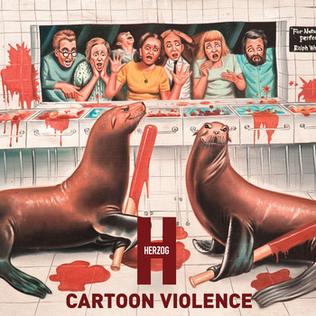The Powerpuff Girls is an American superhero animated television series created by animator Craig McCracken and produced by Hanna-Barbera for Cartoon Network. The show follows Blossom, Bubbles and Buttercup, three colorful kindergarten-age girls with superpowers, as well as their father and creator, a scientist named Professor Utonium. The girls all live in the fictional city of Townsville, USA, and are frequently called upon by the Mayor of Townsville to use their powers to help fight local criminals, including Mojo Jojo, Fuzzy Lumpkins, Him, and Princess Morebucks.
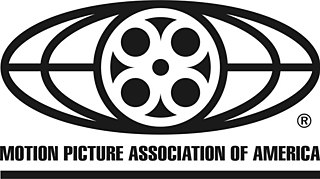
The Motion Picture Association of America (MPAA) film rating system is used in the United States and its territories to rate a film's suitability for certain audiences based on its content. The MPAA rating system is a voluntary scheme that is not enforced by law; films can be exhibited without a rating, although certain theaters refuse to exhibit non-rated or NC-17 rated films. Non-members of MPAA may also submit films for rating. Other media, such as television programs, music and video games, are rated by other entities such as the TV Parental Guidelines, the RIAA and the ESRB.
Ed, Edd n Eddy is a Canadian-American animated comedy television series created by Danny Antonucci for Cartoon Network, and the sixth of the network's Cartoon Cartoons. The series revolves around three preteen boys named Ed, Edd, and Eddy—collectively known as "the Eds"—who live in a suburban cul-de-sac in the fictional town of Peach Creek. Under the unofficial leadership of Eddy, the trio frequently invent schemes to make money from their peers to purchase their favorite confectionery, jawbreakers. Their plans usually fail, leaving them in various, often humiliating, predicaments.

"The Day the Violence Died" is the eighteenth episode of The Simpsons' seventh season. It originally aired on the Fox network in the United States on March 17, 1996. It was written by John Swartzwelder and directed by Wes Archer. Kirk Douglas guest stars as Chester J. Lampwick, Alex Rocco as Roger Meyers Jr., Jack Sheldon as an anthropomorphic constitutional amendment, Suzanne Somers as herself, and Phil Hartman as Lionel Hutz. The end of the episode features Lester and Eliza, versions of Bart and Lisa Simpson that appeared in The Tracey Ullman Show in the 1980s.
Graphic violence is the depiction of especially vivid, brutal and realistic acts of violence in visual media such as literature, film, television, and video games. It may be real, simulated live action, or animated.

Cartoon Network Turkey is a cable/satellite channel that mainly broadcasts cartoons and was launched on January 28, 2008 and is owned by Doğan Yayın Holding under license from Turner Broadcasting System Europe.
The Big Cartoon DataBase is an online database of information about animated cartoons, animated feature films, animated television shows, and cartoon shorts.
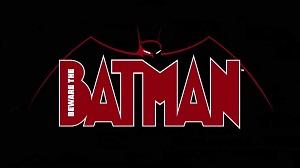
Beware the Batman is an American computer-animated television series based on the DC Comics superhero Batman. The series premiered in the United States on Cartoon Network on July 13, 2013, as part of their DC Nation block, replacing Batman: The Brave and the Bold. The series was produced by Warner Bros. Animation and DC Entertainment. The series ran on Cartoon Network until it was pulled from the schedule four months after its premiere, without official explanation. After the series was put on hiatus, the remaining episodes of the season began to air on Adult Swim's Toonami block, from July 27 to September 28, 2014.
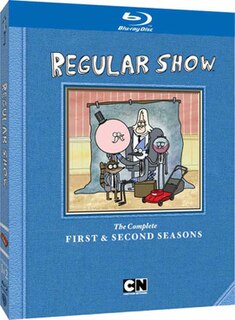
The first season of American animated television series Regular Show originally aired on Cartoon Network in the United States. Many of the characters are loosely based on those developed for J. G. Quintel's student films at California Institute of the Arts: The Naïve Man From Lolliland and 2 in the AM PM. Quintel pitched Regular Show for Cartoon Network's Cartoonstitute project, in which the network allowed young artists to create pilots with no notes to possibly be optioned as a show. After being green-lit, Quintel recruited several indie comic book artists, plus some of the crew members he had worked with on The Marvelous Misadventures of Flapjack, to compose the staff of the show, as their style matched close to what he desired for the series. Regular Show was picked up by Cartoon Network, who decided to create a twelve-episode first season.

The third season of Emmy winning American animated television series Regular Show, created by J.G. Quintel,
originally aired on Cartoon Network in the United States. Many of the characters are loosely based on those developed for Quintel's student films at California Institute of the Arts: The Naïve Man From Lolliland and 2 in the AM PM. Quintel pitched Regular Show for Cartoon Network's Cartoonstitute project, in which the network allowed young artists to create pilots with no notes to possibly be optioned as a show. After being green-lit, Quintel recruited several indie comic book artists to compose the staff of the show, as their style matched close to what he desired for the series. Regular Show was picked up by Cartoon Network, who decided to create a twelve-episode first season.
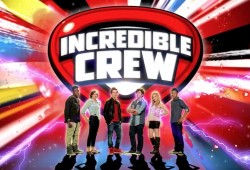
Incredible Crew is an American sketch comedy television series, created by Nick Cannon for Cartoon Network. Cannon created the series in early 2012, and the series aired on January 24, 2013, featuring a 22-minute run time. On July 29, 2013, Incredible Crew was cancelled by Cartoon Network. It is the final live-action TV series to air on Cartoon Network before the channel discontinued live-action programming in 2013.
The DC Comics rating system is a system for rating the content of comic books used by DC Comics. In 2011, DC Comics decided to withdraw from the Comics Code Authority and implement their own rating system for their comics. Rather than replicating the system used by Marvel Comics, DC Comics' system is more similar to video game ratings, specifically the ESRB. A few months later, Image Comics implemented a similar rating system to their own comics that followed the same system as DC.
